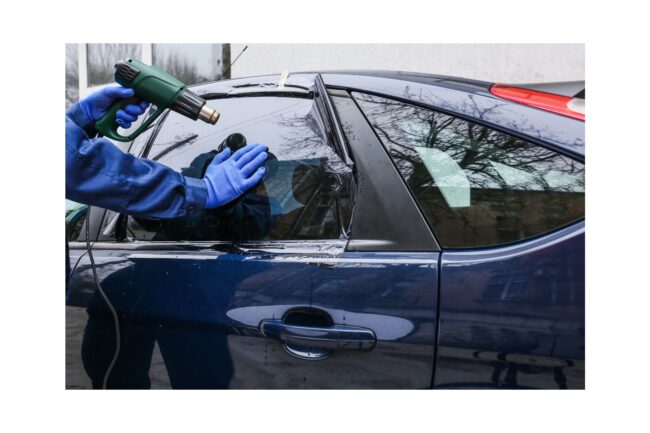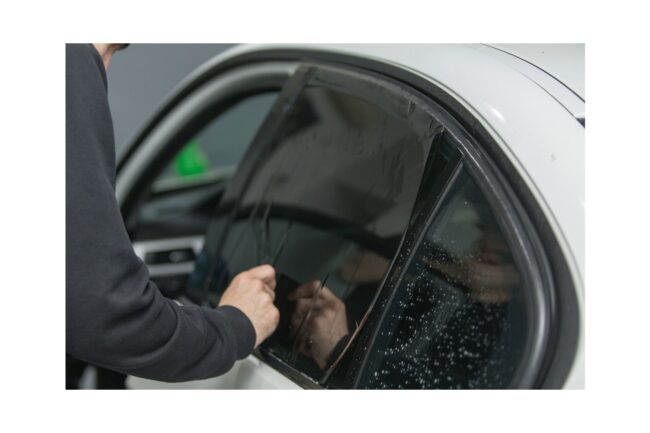In the realm of enhancing both aesthetics and functionality, window tinting stands as a popular choice for many homeowners and automobile enthusiasts alike. While the allure of a sleek, tinted appearance is undeniable, the decision to invest in window tinting involves a nuanced evaluation of various factors that collectively contribute to the overall cost.
Beyond the surface appeal, considerations such as the type of tint, installation expertise, and local regulations play pivotal roles in determining the financial implications of this decision. As we delve into the intricate world of window tinting costs, this exploration will dissect the key factors that influence the pricing landscape.
From the initial investment to long-term benefits, understanding the intricacies of window tinting expenses becomes paramount for individuals seeking a harmonious blend of style, privacy, and energy efficiency. Join us on this journey as we navigate the nuanced terrain of window tinting costs, providing insights that empower consumers to make informed decisions tailored to their specific needs and preferences.
Local Regulations And Compliance
Understanding and adhering to local regulations is a critical aspect when considering window tinting costs. Various regions have distinct laws governing the permissible level of tint darkness for both residential and automotive applications. Failure to comply with these regulations may result in fines or even the need to remove and replace the tint. Additionally, some areas may have specific requirements for reflective properties and the use of certain tinting materials.
Before embarking on a window tinting project, it’s essential to research and comprehend the local laws to ensure compliance and avoid unforeseen expenses. Navigating these legal considerations not only contributes to cost-effectiveness but also ensures a hassle-free and legally sound tinting installation.
Types Of Window Tinting Materials
When contemplating window tinting, the choice of materials is a pivotal decision that directly influences the aesthetics, functionality, and overall cost of the project. The market offers a diverse array of window tinting materials, each with its unique characteristics and advantages. Understanding the distinctions among these materials is essential for making an informed decision that aligns with specific preferences and requirements.
 Dyed Window Film: Affordable option with good UV protection. Offers enhanced privacy by reducing visibility from the outside. Prone to fading over time, necessitating periodic replacement.
Dyed Window Film: Affordable option with good UV protection. Offers enhanced privacy by reducing visibility from the outside. Prone to fading over time, necessitating periodic replacement.- Metalized Window Film: Provides excellent heat rejection and durability. Reflects sunlight, adding a sleek appearance to windows. May interfere with electronic signals due to metal content.
- Carbon Window Film: Offers superior heat rejection without signal interference. Provides a deep, matte finish for enhanced aesthetics. Moderately priced with a balance of performance and style.
- Ceramic Window Film: High-tech material with exceptional heat rejection. Non-metallic and non-conductive, preserving electronic signals. Premium cost but delivers top-tier performance and clarity.
Choosing the right window tinting material involves weighing factors such as budget, performance, and aesthetic preferences. Whether opting for the cost-effective dyed film, the reflective metalized option, the stylish carbon film, or the top-tier ceramic choice, each material brings its unique set of advantages and considerations.
By understanding the characteristics of these materials, individuals can make a well-informed decision that ensures a satisfying blend of style, functionality, and cost-effectiveness for their window tinting project.
UV Protection And Energy Efficiency
While the initial cost of window tinting may seem like an investment, the long-term savings associated with UV protection and enhanced energy efficiency make it a financially savvy choice. High-quality window tints act as a barrier against harmful ultraviolet (UV) rays, safeguarding interiors from sun damage and reducing the need for frequent replacements of furniture, flooring, and other valuables.
Moreover, window tints can contribute to improved energy efficiency by reducing heat transfer, thereby lowering cooling costs in warmer months. Considering these long-term benefits is crucial when evaluating the overall cost of window tinting, as it transforms the initial expenditure into a strategic investment for both residential and automotive applications.
Maintenance Costs
Maintenance costs are a crucial consideration when contemplating window tinting, as they influence the long-term affordability and performance of the chosen tinting solution. Beyond the initial installation expenses, understanding the upkeep requirements and associated costs is essential for a comprehensive financial evaluation.
Maintenance Costs: Key Factors to Consider
- Cleaning Materials: Regular cleaning is essential to preserve the appearance and functionality of window tinting. Assess the cost and availability of suitable cleaning solutions to avoid potential damage to the tinting material.
- Professional Cleaning Services: Some window tinting materials may benefit from professional cleaning services. Factor in the periodic costs associated with hiring professionals to ensure proper maintenance.
- Scratch Repair and Replacement: Consider the potential costs of repairing scratches or replacing damaged sections of the tint. Assess the durability of the chosen material and evaluate how it withstands wear and tear over time.
- DIY Maintenance Supplies: Explore the market for do-it-yourself maintenance supplies like scratch repair kits or protective coatings. Understanding these options can contribute to cost-effective long-term maintenance.
Factoring in maintenance costs is integral to making an informed decision about window tinting. Balancing the upfront investment with ongoing upkeep expenses ensures that the chosen tinting solution remains both aesthetically pleasing and economically viable over its lifespan. By considering the various elements of maintenance, individuals can proactively manage and budget for the necessary upkeep, maximizing the value and longevity of their window tinting investment.
Warranty Coverage: Evaluating Added Value
Warranty coverage plays a pivotal role in the overall cost assessment of window tinting. Different providers offer varying warranty options, ranging from standard coverage to more comprehensive plans. Evaluating the terms and conditions of warranties is essential, as it provides insight into the longevity and durability of the chosen tinting materials.
A robust warranty not only reflects the confidence of the provider in their product but also offers added value to consumers by potentially reducing future maintenance and replacement costs. Understanding the coverage details, including any limitations or exclusions, ensures that consumers make an informed decision that aligns with their long-term expectations and financial considerations.
Potential Health Benefits
Considering window tinting goes beyond aesthetic appeal and energy efficiency; it extends to potential health benefits that are often overlooked. The impact of sunlight exposure on health is well-documented, and window tinting can serve as a protective barrier against harmful elements. Let’s explore how this seemingly cosmetic.
 UV Radiation Protection: High-quality window tints act as a shield against harmful ultraviolet (UV) radiation, reducing the risk of skin damage and related health issues. This is particularly crucial for individuals who spend significant time in vehicles or workspaces with prolonged sun exposure.
UV Radiation Protection: High-quality window tints act as a shield against harmful ultraviolet (UV) radiation, reducing the risk of skin damage and related health issues. This is particularly crucial for individuals who spend significant time in vehicles or workspaces with prolonged sun exposure.- Eye Protection: Glare from sunlight can strain the eyes and lead to discomfort or vision-related problems. Window tinting helps mitigate glare, creating a more comfortable and visually-friendly environment, especially during sunny days.
- Temperature Regulation: Excessive heat can have adverse effects on health, contributing to dehydration and discomfort. Window tinting aids in regulating interior temperatures, creating a more pleasant and health-friendly environment by reducing the need for constant air conditioning.
The potential health benefits of window tinting extend beyond mere aesthetics. By safeguarding against UV radiation, minimizing glare, and regulating interior temperatures, window tinting contributes to a healthier and more comfortable living and working environment. This nuanced perspective encourages individuals to view window tinting not only as a practical investment but also as a measure that enhances their overall health and well-being.
Customization And Aesthetics
Customization options and aesthetic preferences significantly influence the overall cost of window tinting. While it’s tempting to opt for elaborate and visually striking designs, each customization choice comes with its associated expenses. Factors such as tint color, patterns, and gradients contribute to the overall cost, demanding a delicate balance between achieving a personalized aesthetic and staying within budget constraints.
Additionally, the type of tinting material selected for its visual appeal may have varying costs. Understanding the impact of customization on the overall budget is crucial for individuals seeking a unique and visually pleasing window tinting solution without compromising their financial limits. Striking this balance ensures that the final result aligns with both personal style and budgetary considerations.
This exploration into the multifaceted world of window tinting, it becomes evident that the decision to invest in this seemingly aesthetic enhancement encompasses a myriad of factors. From local regulations and UV protection to customization and potential health benefits, the considerations are as diverse as the benefits themselves. At Quality Auto Glass Tint, located at 9110 Fairway Dr, Roseville, CA 95678, our commitment to excellence in auto glass services stands as a testament to our dedication.
With a team boasting over two decades of industry expertise, we pride ourselves on transforming your auto glass aspirations into a tangible reality. To embark on a journey of enhanced aesthetics, comfort, and potential health benefits, contact us at (916) 888-8495 or Roseville@qualityautoglasstint.com. Our doors are open Monday to Saturday from 9 am to 5 pm. Learn about Roseville through the lens of quality auto glass services and let us redefine your driving experience.
Ready to elevate your driving experience? Contact Quality Auto Glass Tint today at (916) 888-8495 or Roseville@qualityautoglasstint.com. Our skilled team is ready to discuss your window tint, paint protection, windshield repair, or replacement needs. Visit us at 9110 Fairway Dr, Roseville, CA 95678, Monday to Saturday, 9 am to 5 pm. Let’s embark on a journey of transforming your auto glass aspirations into a reality. Drive with pride, comfort, and the assurance of excellence in every service we offer.




